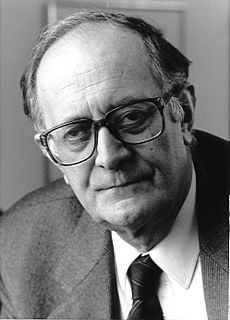
The International Red Cross and Red Crescent Movement is an international humanitarian movement with approximately 17 million volunteers, members and staff worldwide which was founded to protect human life and health, to ensure respect for all human beings, and to prevent and alleviate human suffering.

The Geneva Convention relative to the Protection of Civilian Persons in Time of War, commonly referred to as the Fourth Geneva Convention and abbreviated as GCIV, is one of the four treaties of the Geneva Conventions. It was adopted in August 1949. While the first three conventions dealt with combatants, the Fourth Geneva Convention was the first to deal with humanitarian protections for civilians in a war zone. There are currently 196 countries party to the 1949 Geneva Conventions, including this and the other three treaties.

The First Geneva Convention for the Amelioration of the Condition of the Wounded in Armies in the Field, held on 22 August 1864, is the first of four treaties of the Geneva Conventions. It defines "the basis on which rest the rules of international law for the protection of the victims of armed conflicts." After the first treaty was adopted in 1864, it was significantly revised and replaced in 1906, 1929, and finally 1949. It is inextricably linked to the International Committee of the Red Cross, which is both the instigator for the inception and enforcer of the articles in these conventions.

The Magen David Adom is Israel's national emergency medical, disaster, ambulance and blood bank service. The name means "Red Star of David". Since June 2006, Magen David Adom has been officially recognized by the International Committee of the Red Cross (ICRC) as the national aid society of the State of Israel under the Geneva Conventions, and a member of the International Federation of Red Cross and Red Crescent Societies. MDA has a dedicated medical emergency phone number in Israel, 101.
International humanitarian law (IHL) is the law that regulates the conduct of war. It is that branch of international law which seeks to limit the effects of armed conflict by protecting persons who are not participating in hostilities, and by restricting and regulating the means and methods of warfare available to combatants.
The London Declaration concerning the Laws of Naval War is an international code of maritime law, especially as it relates to wartime activities, proposed in 1909 at the London Naval Conference by the leading European naval powers, the United States and Japan, after a multinational conference that occurred in 1908 in London. The declaration largely reiterated existing law, but dealt with many controversial points, including blockades, contraband and prize, and showed greater regard to the rights of neutral entities.

The emblems of the International Red Cross and Red Crescent Movement, under the Geneva Conventions, are to be placed on humanitarian and medical vehicles and buildings, and to be worn by medical personnel and others carrying out humanitarian work, to protect them from military attack on the battlefield. There are four such emblems, three of which are in use: the Red Cross, the Red Crescent, and the Red Crystal. The Red Lion and Sun is also a recognized emblem, but is no longer in use.

The International Committee of the Red Cross (ICRC) is a humanitarian institution based in Geneva, Switzerland, and a three-time Nobel Prize Laureate. State parties (signatories) to the four Geneva Conventions of 1949 and their Additional Protocols of 1977 and 2005 have given the ICRC a mandate to protect victims of international and internal armed conflicts. Such victims include war wounded, prisoners, refugees, civilians, and other non-combatants.

The International Federation of Red Cross and Red Crescent Societies is a worldwide humanitarian aid organization that reaches 160 million people each year through its 190-member National Societies. It acts before, during and after disasters and health emergencies to meet the needs and improve the lives of vulnerable people. It does so with impartiality as to nationality, race, gender, religious beliefs, class and political opinions.

Cornelio Sommaruga is a prominent Swiss humanitarian, lawyer and diplomat who is best known for being President of the International Committee of the Red Cross (ICRC) from 1987 to 1999. Today, he chairs the Geneva International Centre for Humanitarian Demining (GICHD) in Geneva. He is also active on a number of boards, such as the International Union Against Cancer. Currently he is Chair of the Board of Directors of the Foundation For the Future, an organization dedicated to promoting human rights in the Middle East and North Africa, and the honorary President of Initiatives of Change International, a global organization dedicated to "building trust across the world's divides" of culture, nationality, belief, and background.

The Geneva Conventions comprise four treaties, and three additional protocols, that establish the standards of international law for humanitarian treatment in war. The singular term Geneva Convention usually denotes the agreements of 1949, negotiated in the aftermath of the Second World War (1939–45), which updated the terms of the two 1929 treaties, and added two new conventions. The Geneva Conventions extensively defined the basic rights of wartime prisoners, established protections for the wounded and sick, and established protections for the civilians in and around a war-zone. The treaties of 1949 were ratified, in whole or with reservations, by 196 countries. Moreover, the Geneva Convention also defines the rights and protections afforded to non-combatants, yet, because the Geneva Conventions are about people in war, the articles do not address warfare proper—the use of weapons of war—which is the subject of the Hague Conventions, and the bio-chemical warfare Geneva Protocol.

The Algerian Red Crescent Society is an Algerian humanitarian volunteer organization founded in 1957. It has only been recognized by the International Red Cross and Red Crescent Movement since 1963.
Jean Simon Pictet was a Swiss citizen, jurist, legal practitioner working in international humanitarian law. First as a secretary-jurist, and then as a senior executive and Vice-President of the International Committee of the Red Cross (ICRC), Pictet was instrumental in drafting the 1949 Geneva Conventions for the protection of victims of war, their Commentaries, and negotiating the 1977 Additional Protocols. He also proposed the Red Cross Movement’s seven Fundamental Principles, which were adopted at Vienna in 1965: Humanity, Impartiality, Neutrality, Independence, Voluntary Service, Unity and Universality. In 1989, an international humanitarian law competition for students was founded and named after him.
Customary international humanitarian law is a body of unwritten rules of public international law, which govern conduct during armed conflict.
The Independent Reformed Church in Korea(IRCK) is a Conservative Christian denomination in South Korea. It was established in 1964, and was the only church to use Reformed in its name. It confess the Westminster Confession, the Heidelberg Catechism, the Canons of Dort and the ecumenical creeds.

Restoring Family Links (RFL) is a program of the Red Cross and Red Crescent Movement, more specifically the International Committee of the Red Cross (ICRC) and National Red Cross and Red Crescent Societies involving activities that aim to prevent separation and disappearance, look for missing persons, restore and maintain contact between family members and clarify the fate of persons reported missing. The activities are carried out by the components of the RFL is sometimes also referred to as family tracing.

The Standing Commission of the Red Cross and Red Crescent is the permanent statutory body of the International Red Cross and Red Crescent Movement and the highest deliberative body of the Movement between the meetings of the Council of Delegates and the International Conference of the Red Cross and Red Crescent. It was originally set up to coordinate cooperation between the International Committee of the Red Cross and the International Federation of Red Cross and Red Crescent Societies.

IEEE Rebooting Computing is a global initiative launched by IEEE that proposes to rethink the concept of computing through a holistic look at all aspects of computing, from the device itself to the user interface. As part of its work, IEEE Rebooting Computing provides access to various resources like conferences and educational events, feature and scholarly articles, reports, and videos.












